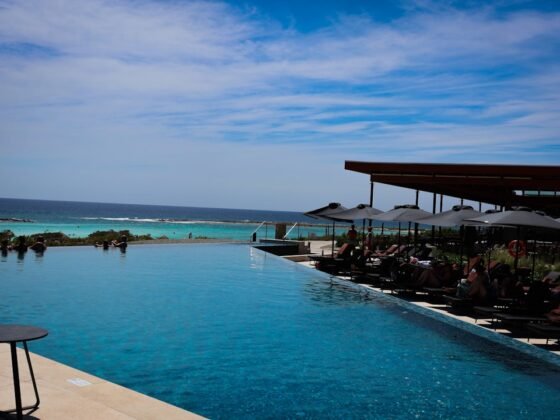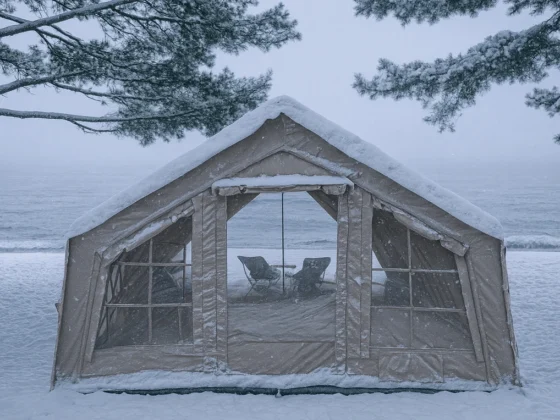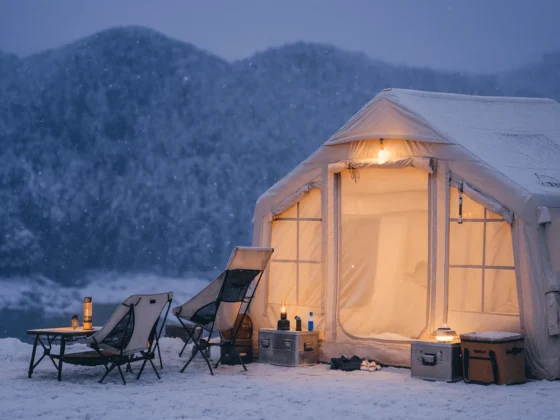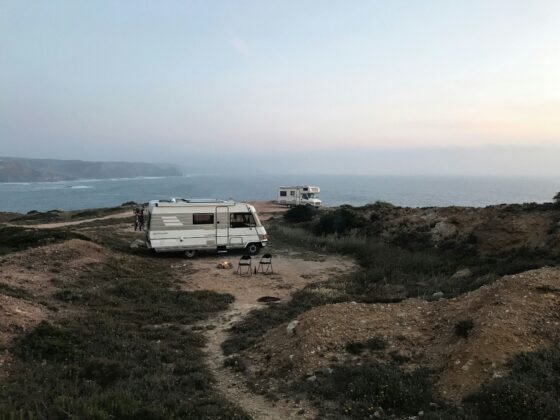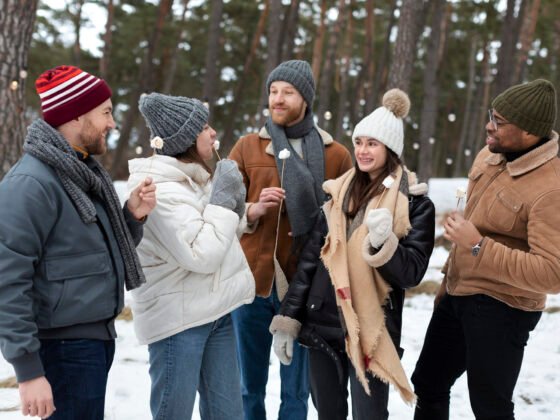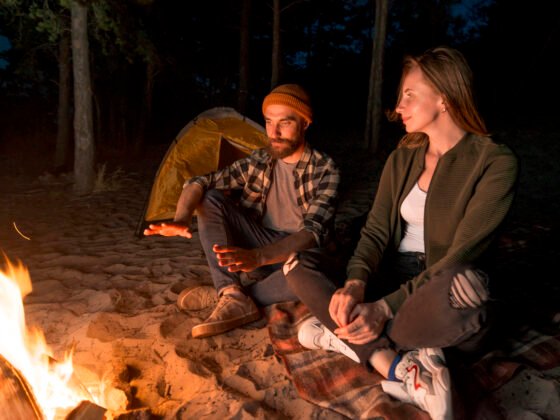What happens when two people in love decide to hit the road together? Sometimes it’s bliss, and sometimes it’s discovering that your partner thinks one pair of shoes is enough for a week-long trip. Traveling as a couple has a funny way of turning small quirks into big revelations. It’s not just about sightseeing and selfies. It’s about sharing space, decisions, and sometimes even blame for missing the right turn.
Couple travel has become a cultural marker. It’s a kind of relationship test that comes sooner than buying a house or getting a pet. In a world where experiences are valued more than material things, couples are investing in trips to create shared memories. The rise of “baecations” on Instagram and TikTok shows just how much travel has become tied to love stories. But beyond the filtered photos, reality hits when you’re both jet-lagged, cranky, and standing in line at airport security.
Destinations like Gatlinburg have surged in popularity because they offer couples the best of both worlds, cozy mountain charm and plenty of activities. It’s a town where scenic views mix with entertainment and dining, making it a perfect testing ground for travel compatibility.
In this blog, we will share travel tips every couple learns the hard way, from handling disagreements to balancing fun with rest, so you can enjoy the journey without letting stress take over.
Agree on the Details Before You Leave
Couples often assume they’re on the same page until the trip begins. One person thinks “relaxing getaway,” while the other imagines “action-packed adventure.” That mismatch leads to tension fast. Talk about expectations before you book. Decide how many activities you want to do each day. Discuss budget limits. Set boundaries on splurges like room upgrades or fancy meals.
This is where destination research matters. But exactly what is Gatlinburg TN known for? It’s famous for being the gateway to the Smokies, offering everything from mountain hikes to bustling attractions downtown. You can stroll through artisan shops, enjoy Southern dining, or ride the SkyLift for panoramic views. That variety is exactly why couples should plan ahead, there’s something for everyone, but without coordination, one of you may be stuck wishing for more trails while the other wanted more restaurants. To balance it out, mix active days with slower ones. And if you want a place to stay that keeps you close to the action, Olde Gatlinburg Place is a strong choice. Its location downtown makes it easy to reach both outdoor adventures and local dining without endless driving.
Agreeing on these details doesn’t kill spontaneity. It prevents silent resentment later when one partner feels ignored. Planning gives you a framework, but you can still leave space for surprises.
Money Matters Can Make or Break the Trip
If love languages exist, so do travel money languages. Some partners see vacations as times to splurge. Others count receipts like accountants. The key is not avoiding the subject but addressing it openly. Set a joint budget before you leave. Break it into categories like lodging, food, entertainment, and extras. This way, you both know where the money is going.
Cash for small expenses can help too. It prevents one partner from feeling like they’re paying for every coffee or snack. Apps for splitting costs also work, but sometimes old-fashioned envelopes keep things simpler. Couples who skip these conversations usually regret it when credit card bills roll in later.
The Power of Downtime
Vacations are often packed with things to do, especially in lively towns. But constant motion wears couples down. That’s when arguments flare up over nothing. The solution is simple: schedule downtime. It could be an afternoon nap, a slow morning coffee, or just sitting by the hotel balcony watching the view.
Downtime isn’t wasted time. It resets your energy and helps you enjoy the rest of the trip. Couples often learn this lesson the hard way when they push themselves to do everything in one day and end up exhausted. A calmer pace creates space for small, memorable moments,the kind of moments that don’t make it to social media but stick with you long after the trip ends.
Packing Requires Compromise
Packing is where personality differences show up fast. One partner rolls clothes into neat cubes while the other shoves items into the suitcase five minutes before leaving. To avoid frustration, divide space fairly. Set rules like “one shared bag for toiletries” or “each person gets one carry-on.” This keeps arguments about space to a minimum.
Couples also learn that packing light is not just advice, it’s survival. Lugging giant suitcases through airports or up mountain cabins creates unnecessary stress. The trick is to agree on essentials. Shoes, layers, and travel-size toiletries matter more than outfits for every mood. Sharing some items like chargers or sunscreen also saves space.
Technology Can Help, but Not Replace Communication
Navigation apps, booking platforms, and translation tools are lifesavers on trips. But couples who lean too heavily on tech sometimes lose the chance to solve problems together. Use apps to make things easier, but remember that teamwork builds connection. When you get lost, work it out instead of pointing fingers. When a restaurant is closed, find another together.
Travel is full of unexpected detours. How you handle them as a couple often matters more than the original plan. Couples who stay flexible tend to enjoy trips more than those who treat every hiccup as a disaster.
Respecting Differences Is Key
Every couple learns the hard way that personal rhythms don’t always match. One person might wake up at dawn ready to explore, while the other treasures sleeping in. Forcing one lifestyle onto the other rarely works. Instead, compromise. Take turns adjusting, or plan mornings where one partner explores while the other relaxes.
Respecting differences means more than just schedules. It also applies to food choices, activity preferences, and energy levels. One of the joys of traveling together is discovering how different perspectives shape the trip. Instead of treating those differences as obstacles, treat them as part of the adventure.
Why These Lessons Matter Beyond Travel
The lessons couples learn on the road often extend beyond vacations. Travel magnifies habits and tests patience, but it also teaches communication, compromise, and humor in the face of stress. In a culture where people prize experiences, travel isn’t just leisure. It’s a crash course in partnership.
Today’s couples are investing in these shared experiences because they know they shape long-term memories and strengthen bonds. But the best memories don’t always come from perfect sunsets or flawless itineraries. They often come from the funny mistakes, the small compromises, and the way you figured it out together.
So yes, couples will always learn some travel tips the hard way. But those lessons become the stories you tell years later. And maybe that’s the real point of traveling together—not just to see the world, but to see each other in new ways, and still want to share the next trip when it’s over.
Photo by Steven Van Elk on Unsplash




